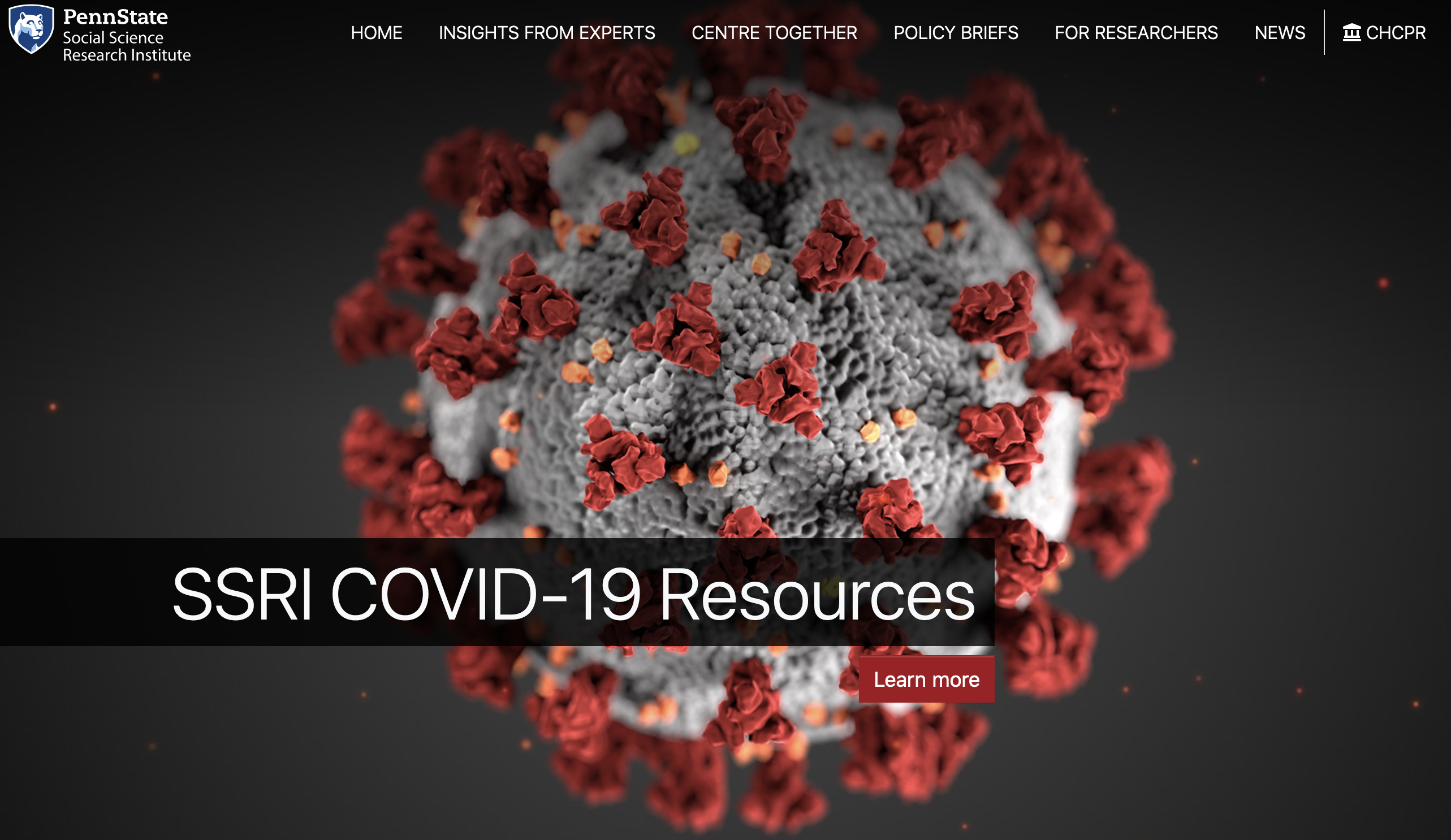
With the spread of COVID-19, Penn State’s Social Science Research Institute (SSRI) has launched a new website that provides resources for researchers, policy-makers and the general public to inform and to address impacts of the pandemic—with a focus on its broader implications for individuals, families, communities, and the Commonwealth.
The SSRI COVID-19 Resources website features a range of social and behavioral science that addresses the pandemic. Insights from Experts provide informed commentary from leading Penn State social scientists on the spillover effects of the pandemic. Topics include the impacts of COVID-19 on individuals with substance abuse disorder, on the criminal justice system, and on cancer care, with forthcoming commentaries on the effects of the pandemic on education, the economy, and child and youth services.
Policy Briefs are aimed at local, state and federal government officials. These briefs survey the research evidence relevant to topics such as the impacts of the pandemic for senior citizens and other vulnerable populations to support evidence-based decision-making. The For Researchers section summarizes funding opportunities and other resources for investigators.
“The fundamental role of human behavior is clear in efforts to contain the spread of this disease. And, both human behavior and social relationships will be central to our society’s resilience over the longer term as we address the pandemic’s spillover effects to our economic, education and other social systems,” said Susan McHale, SSRI director and distinguished professor of human development and family studies and demography. “Also crystal clear is the utility of science-based knowledge for effective decision-making. Penn State’s social and behavioral scientists are contributing to this effort by generating evidence on how individuals, families and communities can thrive in the face of challenge.”
The website is supported by SSRI in partnership with Penn State’s Center for Health Care and Policy Research (CHCPR).
“The pandemic is and will continue to have profound effects on individuals and populations, at all levels,” said Dennis Scanlon, director of CHCPR and distinguished professor of health policy & administration. “Penn State researchers are committed to assisting policymakers, communities, and philanthropies in using science-informed approaches to support evidence-based decisions regarding program implementation and budgeting. In addition, researchers will study the short and long-term impact the pandemic has on our people and populations.”